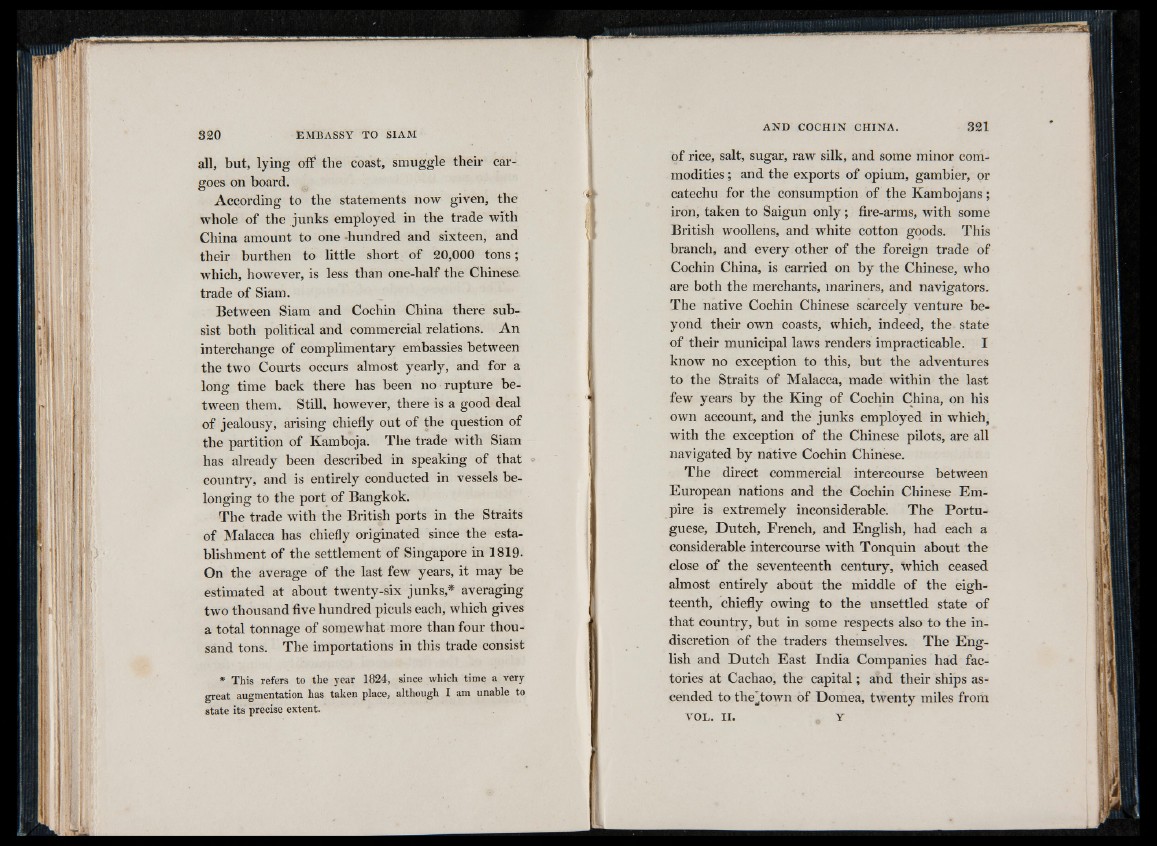
all, but, lying off the coast, smuggle their cargoes
on board.
According to the statements now given, the
whole of the junks employed in the trade with
China amount to one -hundred and sixteen, and
their burthen to little short of 20,000 tons ;
which, however, is less than one-half the Chinese
trade of Siam.
Between Siam and Cochin China there subsist
both political and commercial relations. An
interchange of complimentary embassies between
the two Courts occurs almost yearly, and for a
long time back there has been no rupture between
them. Still, however, there is a good deal
of jealousy, arising chiefly out of the question of
the partition of Kamboja. The trade with Siam
has already been described in speaking of that
country, and is entirely conducted in vessels belonging
to the port of Bangkok.
The trade with the British ports in the Straits
of Malacca has chiefly originated since the establishment
of the settlement of Singapore in 1819-
On the average of the last few years, it may be
estimated at about twenty-six junks,* averaging
two thousand five hundred piculs each, which gives
a total tonnage of somewhat more than four thousand
tons. The importations in this trade consist
* This refers to the year 1824, since which time a very
great augmentation has taken place, although I am unable to
state its precise extent.
of rice, salt, sugar, raw silk, and some minor commodities
; and the exports of opium, gambier, or
catechu for the consumption of the Kambojans ;
iron, taken to Saigun only; fire-arms, with some
British woollens, and white cotton goods. This
branch, and every other of the foreign trade of
Cochin China, is carried on by the Chinese, who
are both the merchants, mariners, and navigators.
The native Cochin Chinese scarcely venture beyond
their own coasts, which, indeed, the state
of their municipal laws renders impracticable. I
know no exception to this, but the adventures
to the Straits of Malacca, made within the last
few years by the King of Cochin China, on his
own account, and the junks employed in which,
with the exception of the Chinese pilots, are all
navigated by native Cochin Chinese.
The direct commercial intercourse between
European nations and the Cochin Chinese Empire
is extremely inconsiderable. The Portuguese,
Dutch, French, and English, had each a
considerable intercourse with Tonquin about the
close of the seventeenth century, which ceased
almost entirely about the middle of the eighteenth,
chiefly owing to the unsettled state of
that country, but in some respects also to the indiscretion
of the traders themselves. The English
and Dutch East India Companies had factories
at Cachao, the capital; and their ships ascended
to the^town of Domea, twenty miles from
VOL. II. 0 Y